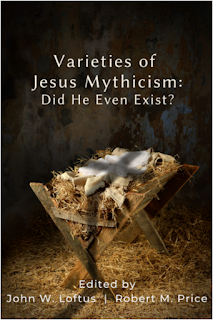All of our god(s) were invented in utter, total isolation
If the Bible is what the devout claim it is, we should be able to trust the information it provides about god, right? Alas, so often—far too often—that’s hard to do. How do modern Christians feel about these two verses, Exodus 29:17-18, i.e., proper worship procedure regarding animal sacrifice:
“Then you shall cut the ram into its parts and wash its entrails and its legs and put them with its parts and its head and turn the rest of the ram into smoke on the altar. It is a burnt offering to the LORD; it is a pleasing odor, an offering by fire to the LORD.”
I’m assuming not too many Christians would welcome this kind of smokey ritual on Sunday mornings. The author of this text believed that (1) his god was close enough overhead to smell the smoke from the fire; (2) his god had a sense of smell; (3) his god savored the aroma of burning animal flesh. Of course, this is a sampling of primitive, superstitious religion: one way to get right with a god was animal sacrifice. Another aspect of primitive religion is disguised here by the English translation. The word LORD in all caps is the rendering of the divine name; this god’s name was Yahweh—as reconstructed from four Hebrew consonants (add different vowels and you get Jehovah). Calling on the name of the god is a kind of magic, which survives to this day when Christians say, “…in Jesus’ name we pray.”


















.jpg)